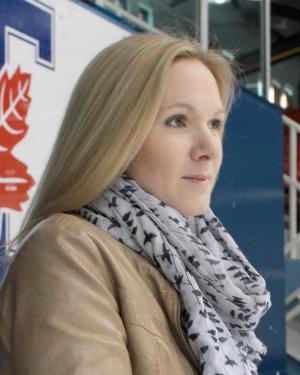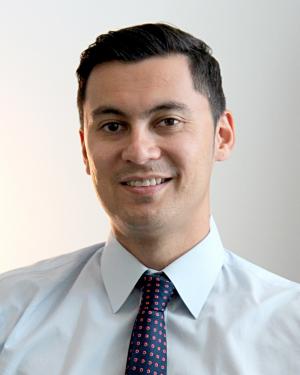About Us
MPARC is a unique research facility integrating the study of physical activity and mental health. The researchers involved with MPARC are dedicated to developing and evaluating interventions to promote physical activity and mental health among people at risk of inactivity and mental health problems. Examples of populations we work with include: mental health service users, cancer survivors, youth sport participants and people with spinal cord injuries.
The KPE Faculty Council endorsed the establishment of MPARC as an Extra-Departmental Unit (Level D) on May 1, 2019, with Professor Catherine Sabiston appointed as the EDU director.
MPARC is committed to developing and testing intervention programs that will not only work in the lab, but also translate to the real world. Through promoting physical activity and reducing sedentary behaviour, the MPARC research team hopes to reduce mental health challenges and incorporate sustainable long-term physical activity into the lives of people from diverse populations. MPARC features accessible cardiovascular and strength training, psychological assessment and data collection tools (on-site and field-based), and advanced software for mixed methods analyses.
Main Research Foci:
- Psychosocial predictors of physical activity and sedentary behaviour
- Development, evaluation, and dissemination of physical activity interventions across the lifespan
- Mental and physical health outcomes associated with physical activity and sedentary behaviours
Research Labs
There are four research labs housed within MPARC.
ADAPT Lab
Health Behaviour and Emotion Lab
Exercise Oncology Lab
Sport & Performance Psychology Lab
MPARC Infrastructure Funding - Canada Foundation for Innovation (CFI)
MPARC's research infrastructure has been funded by the Canada Foundation for Innovation (CFI).
Current Projects
Main projects using the MPARC infrastructure.
ActiveMatch

ActiveMatch is both a free online service and a research project that helps women diagnosed with cancer find their close-to-ideal exercise partner or small exercise group. ActiveMatch was designed to help women diagnosed with cancer connect with similar women who are looking for support to help start, continue or change their exercise routines. ActiveMatch is available to any woman in Canada who has had cancer (i.e., women can join at any stage of treatment, recovery, survivorship, etc.).
As a research project, ActiveMatch is funded by a Canadian Cancer Society Research Institute Innovation to Impact Grant. The purpose of the research project is to evaluate ActiveMatch as a service.
Learn more about Active Match. For more information, please visit www.activematch.ca. To get involved, please e-mail the ActiveMatch team.
Global Prostate Cancer Exercise and Metabolic Health Initiative (GAP4) Trial
MPARC is the Canadian site for the Global Prostate cancer exercise and metabolic health initiative trial. This health initiative is examining the effect of combining a high intensity aerobic and resistance training with psychosocial support in advanced prostate cancer patients. The purpose is to determine high intensity aerobic and resistance training with psychosocial support increases overall survival compared to psychosocial support.
Igniting Fitness Possibilities (IFP)

IFP is an inclusive community-based physical literacy program that aims to foster a passion for physical activity among children and youth across grades 1-12. The goal of IFP is to help children and youth with diverse abilities gain a positive attitude towards physical activity and its benefits, develop the confidence to try new community-wide physical activities and form new friendships, and be motivated to continue future physical activity and set goals to stay active. IFP's community partners include: the Junior Blues Program at the University of Toronto, Variety Village, Abilities Centre, MLSE LaunchPad, Pickering Soccer Club, and Miles Nadal Jewish Community Centre.
IFP also involves a research component that has been funded through National Bank, Milos Ranoic Foundation, Connaught New Researcher Award (University of Toronto), Social Sciences and Humanities Research Council of Canada (SSHRC), Holland Bloorview Kids Rehabilitation Hospital Foundation, the Ontario Sport and Recreation Communities Fund, and Chillin' For Kids. The purpose of this research arm is to pilot the IFP program across a variety of neighbourhoods to determine its feasibility, acceptability, and impact on physical literacy outcomes. Learn more information on IFP.
MoveU.HappyU: Behaviour Change Coaching and Exercise Training for Mental Health in Students
MoveU.HappyU is an individualized six-week program that offers behaviour change coaching and exercise training to undergraduate and graduate students at the University of Toronto. Through incorporating motivational tools such as goal setting, plan implementation strategies, stress reduction tactics, and exercise training, the program aims to improve physical activity levels and reduce symptoms of stress, depression, and anxiety in inactive to moderately active students. The overarching aim of the program is to evaluate the effectiveness and feasibility of implementing an exercise program for campus health and well-being. Email MoveU.HappyU program coordinators.
National Physical Activity Measurement Project for Children and Youth with Disabilities
The purpose of this research project is to evaluate 24-hour movement behaviours (physical activity, sedentary activity, and sleep) and mental health outcomes among children and youth with disabilities across Canada. Over the course of 5 years, we will collect data from 1,000 children and youth (aged 4-17 years) related to sport and physical activity participation, screen-time activity, activities of daily living, sleep, depression and anxiety, and perceptions of parental social support for sport and physical activity. Together, these data will provide: (a) the first Canadian population-level data for school-aged children and youth with all types of disabilities regarding rates of physical activity, screen-time behaviours, and achievement of the 24-Hour Movement Behaviour Guidelines for Children and Youth; (b) establish demographic and mental health profiles of those who meet and do not meet the 24-Hour Movement Behaviour Guidelines for Children and Youth; (c) describe different types of durations for physical activities being undertaken by children and youth with disabilities; and (d) baseline assessment for evaluating programs and policies aimed at supporting the well-being of Canadian children and youth with disabilities. This research is supported through the Social Sciences and Humanities Research Council of Canada (SSHRC) as part of a larger initiative called the Canadian Disability Participation Project cdpp.ca
Self-Conscious Emotions in Youth and Adolescents
The trajectory of youth sport and physical activity involvement peaks at around the age of 13 before drastically declining through adolescence and into young adulthood. Contributors to physical activity participation include self-conscious emotions.
Self-conscious emotions:
• Social physique anxiety, and body-related shame
• Body-related pride
• Guilt, embarrassment, and envy
Given that physical activity settings such as sport, exercise, and physical education place a large emphasis on how the body looks and performs, understanding the role of self-conscious emotions may provide better insight into physical activity motives and behaviour in youth and adolescents.
If you would like to learn more about the role of self-conscious emotions in sport participation, watch the videos below featuring Dr. Jenna Gilchrist’s research. Dr. Gilchrist completed her doctoral studies within the Health Behaviour and Emotion lab of MPARC.
Sensory Motor Instructional Learning Experience (S.M.I.L.E.) Program
Founded by Jack Scholz in 1982, S.M.I.L.E. is an innovative 12-week academic-based program that is intended to provide children and youth with varying ability levels a unique opportunity to participate in group-based physical activity programming. Each child is paired one-to-one with a Master of Professional Kinesiology (MPK) student to receive adapted programming for fundamental movement skill development. The evaluation of the S.M.I.L.E. program entails examining changes in fundamental movement skills of the child and youth participants enrolled in the program, as well as exploring the program experiences of the children and their parents/caregivers.
Leadership
DIRECTOR
Catherine Sabiston
Dr. Catherine Sabiston is the director of MPARC. She is a full professor in the Faculty of Kinesiology and Physical Education and holds a Tier II Canada Research Chair in Physical Activity and Mental Health.
Google Scholar
ADVISORY COMMITTEE

Kelly Arbour-Nicitopoulos
Dr. Kelly Arbour-Nicitopoulos is a Assistant Professor in the Faculty of Kinesiology and Physical Education at the University of Toronto, an adjunct scientist at Holland Bloorview Kids Rehabilitation Hospital, and the director of research for the Active Living Alliance for Canadians with a Disability. Her research program focuses on the interplay of physical activity and mental health across the lifespan in clinical and community-based populations living with disabilities.

Katherine tamminen
Dr. Katherine Tamminen is an Assistant Professor in the Faculty of Kinesiology and Physical Education. Her research focuses on athlete well-being at competitive and recreational levels of sport, with a specific focus on parental influence in youth sport and the social processes influencing athletes’ stress, coping, and emotion.

Daniel Santa Mina
Dr. Daniel Santa Mina is an Assistant Professor at the University of Toronto in the Faculty of Kinesiology and Physical Education and the Faculty of Medicine in the Department of Surgery. Dr. Santa Mina is also a scientist in the Cancer Rehabilitation and Survivorship Program at the Princess Margaret Cancer Centre where he is the lead for exercise programming.

Linda Trinh
Dr. Linda Trinh is an assistant professor in the Faculty of Kinesiology and Physical Education with research focused in the development of evidence-based and theoretically-driven physical activity and sedentary behavior interventions for cancer control and survivorship.
Research Gate
